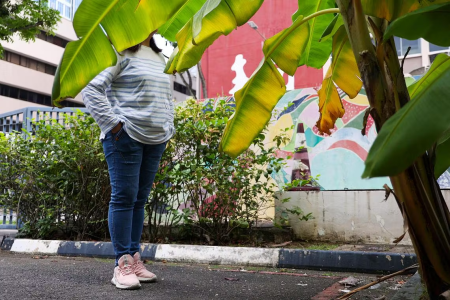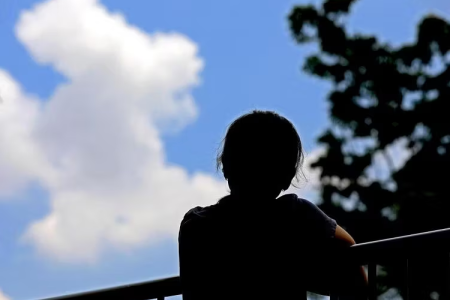Woman flees marriage after six years of domestic abuse
A former teaching assistant's life was turned upside down after getting married.
Ms Zhang Xiaoting, 29, revealed that her husband was an alcoholic and would beat her and pull her hair over the past six years.
"He threatened to harm my family if I told anyone," she told Lianhe Zaobao.
Despite the constant abuse, Ms Zhang still believed her husband would change for the sake of their daughter.
However, when he started to threaten their child, she decided to leave the marriage to protect her daughter's well-being.
Ms Zhang's case is just one example of the increasing number of domestic violence cases in Singapore.
The number of spousal abuse cases handled by community agencies in Singapore rose by 15 per cent, reaching over 2,000 cases last year, according to the Ministry of Social and Family Development's (MSF) first Domestic Violence Trends report.
The report credits the increase to greater public awareness of domestic violence, reduced stigma, and victims feeling more empowered to seek help.
Ms Zhang and her daughter have been staying at a shelter provided by the Anglican Family Centre for the past six months.
She hopes for stricter penalties for abusers and more financial support to raise her daughter.
Anglican Family Centre director Theresa Wee said the centre provides legal support, such as applying for personal protection orders, helps victims rebuild their self-esteem, and provides counselling to address the emotional impact of domestic violence.
Abusers often have higher education levels and more resources than their victims, Ms Wee noted. Abusers may challenge victims' applications for personal protection orders, divorce, or custody, causing delays in court proceedings and affecting victims' ability to work or apply for public housing.
The increase in spousal abuse cases over the past three years is attributed to better identification and assessment of domestic violence cases by social workers, increased public awareness, and victims feeling more empowered to seek help.
Due to the stigma associated with domestic violence and fear of further abuse, many victims choose not to report the incidents.
The Singapore Council of Women's Organisations (SCWO) said that underreporting of spousal abuse has been a longstanding issue. The increase in reported cases reflects the government and community agencies' efforts to raise awareness of domestic violence.
More severe cases, such as physical abuse, forced sexual intercourse, and harassment, are classified as low to medium-risk cases. Serious cases of child abuse and abuse of vulnerable adults are classified as high-risk cases and require intervention from the MSF.
The ministry noted that victims are adults and can seek help and protect themselves with the support of society.
The SCWO suggested that a separate high-risk category be created for spousal abuse cases that require immediate government intervention.
The SCWO's shelter is currently operating at 70 per cent capacity and can accommodate more victims.

Ms Huang Meifang, 47, who has been living at the shelter for two years after enduring over 50 instances of abuse from her bipolar husband, said she felt like she was reborn after escaping the abusive environment.
With the support of her daughter, Ms Huang applied for a personal protection order and initiated divorce proceedings.
"At first, I was afraid to let people know I was getting a divorce, but after leaving the abusive environment, I felt free. I want to tell other victims of domestic violence to find the courage to leave and take care of themselves," she said.
Get The New Paper on your phone with the free TNP app. Download from the Apple App Store or Google Play Store now


